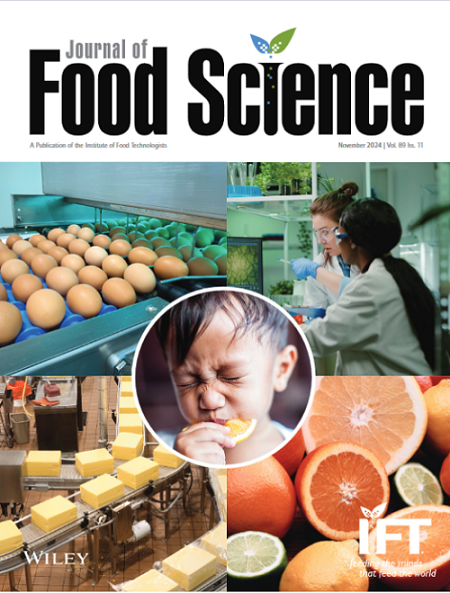Extraction and Activity Mechanism of α-Glucosidase Inhibitory Peptides From Seabuckthorn Seed Meal
Abstract
ABSTRACT
Seabuckthorn seed meal (SSM) is a by-product of the oil extraction process from seabuckthorn seeds. Despite its high protein content, SSM remains largely underutilized. This study aimed to extract seabuckthorn seed meal protein peptides (SSPPs) with hypoglycemic activity and investigate their mechanism of action. The optimized conditions yielded a peptide extraction rate of 20.99% ± 1.09%, achieved through ultrasound pretreatment for 49 min, the addition of 10% alkaline protease, an initial pH of 11, and a 2-h enzymatic hydrolysis time. Notably, the half inhibitory concentration (IC50) against α-glucosidase was determined to be 0.18 ± 0.02 mg/mL, which is superior to that of seabuckthorn seed meal protein (SSP) and acarbose, and demonstrated stability under various processing conditions. Structural comparisons between SSP and SSPP indicated that a higher proportion of random coils in the secondary structure, irregularities in surface morphology, and increased surface hydrophobicity contributed to α-glucosidase inhibition. Inhibitory kinetic analysis indicated that SSPP exerted a direct effect on α-glucosidase activity. Furthermore, four novel α-glucosidase inhibitory peptides were identified through ultrafiltration-affinity-liquid-mass spectrometry, all of which compete with substrates for the enzyme's active site, namely, SER-466 and LYS-665. A significant positive correlation was observed between the molecular docking results and the inhibition outcomes of the synthesized peptides (r = 0.895, p < 0.05). In conclusion, this study supports the potential of SSPP as a natural hypoglycemic food additive that can significantly enhance the value of seabuckthorn resources.
Practical Application: The SSPP developed in this research demonstrated a significant α-glucosidase inhibition rate and exhibited commendable activity stability, thereby offering both technical and theoretical foundations for the high-value application of seabuckthorn seed meal.



 求助内容:
求助内容: 应助结果提醒方式:
应助结果提醒方式:


